Abstract
Serum CA 19-9 antigen concentrations were measured in 246 patients with benign and histologically confirmed malignant gastrointestinal diseases. The CA 19-9 concentration was above the upper limit of the normal range (0-37 U/ml) in 76% of patients with pancreatic carcinoma, 73% of patients with cholangiocarcinoma, 42% of patients with gastric carcinoma, and 22% of patients with hepatoma. High CA 19-9 concentrations were found mainly in patients with a metastasised cancer, whereas 71% of patients with a localised carcinoma had normal CA 19-9 concentrations. All of the patients with benign gastric diseases had normal CA 19-9 values. Moderately increased concentrations were found in 15-36% of the patients with benign pancreatic, liver, and biliary tract diseases. alpha-fetoprotein was a better marker for hepatomas than CA 19-9. CA 19-9 was better than carcinoembryonic antigen in differentiating malignant from benign diseases. The results indicate that the CA 19-9 assay is not completely specific for cancer but serves as a valuable adjunct, especially in the diagnosis of pancreatic carcinoma.
Full text
PDF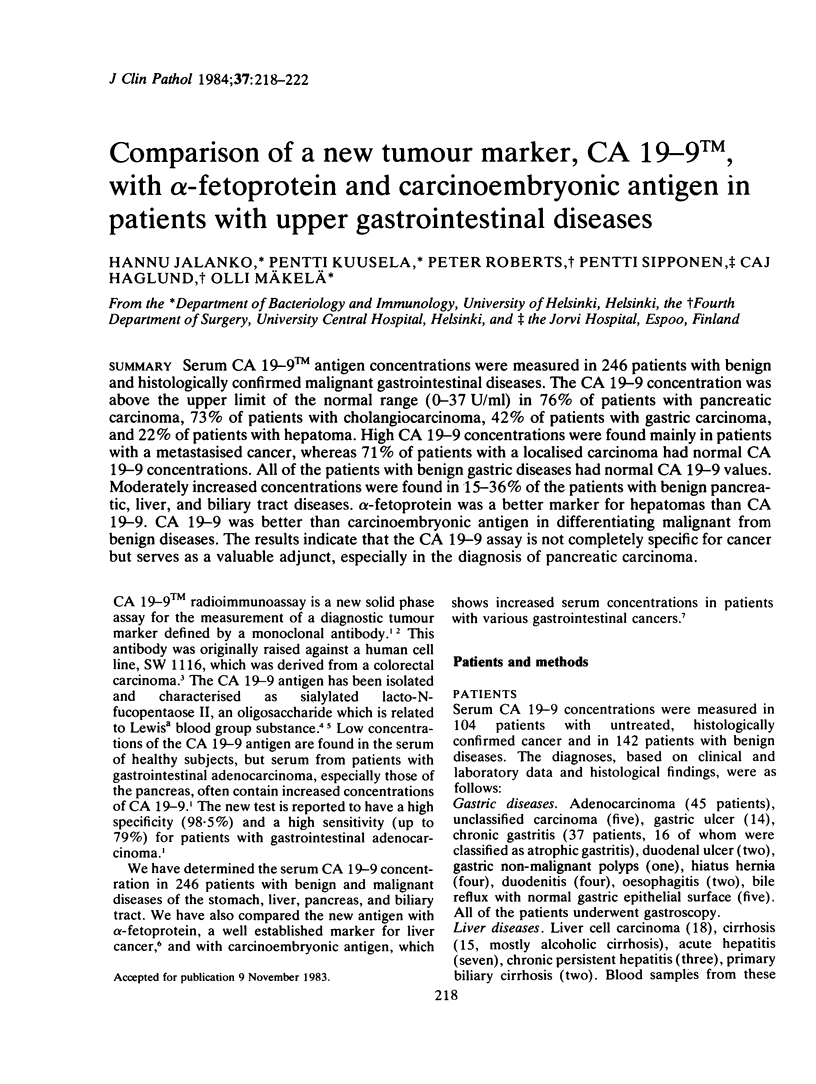
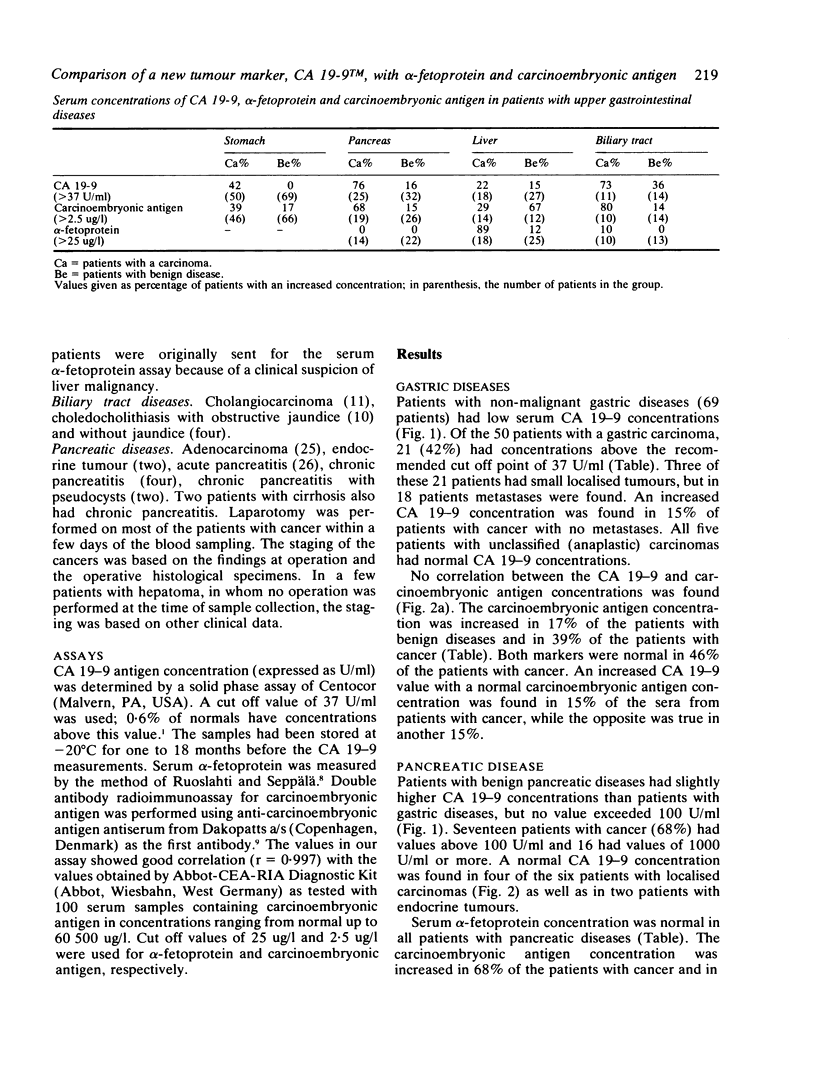
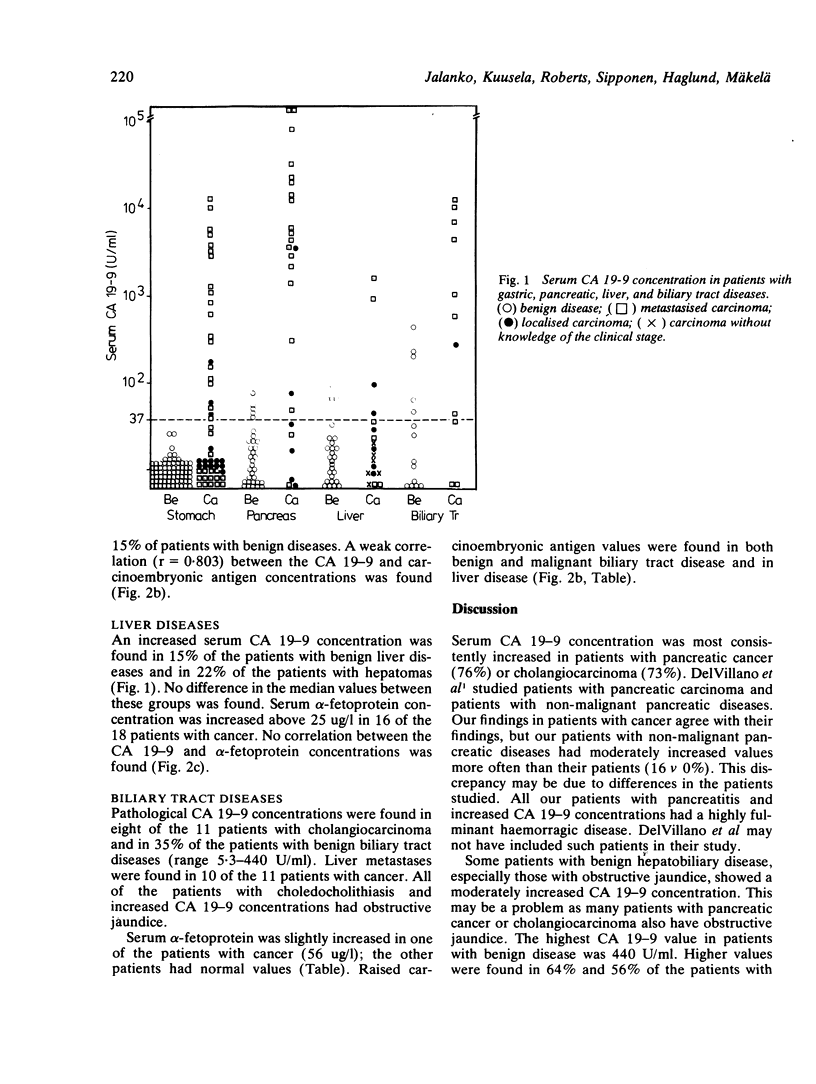
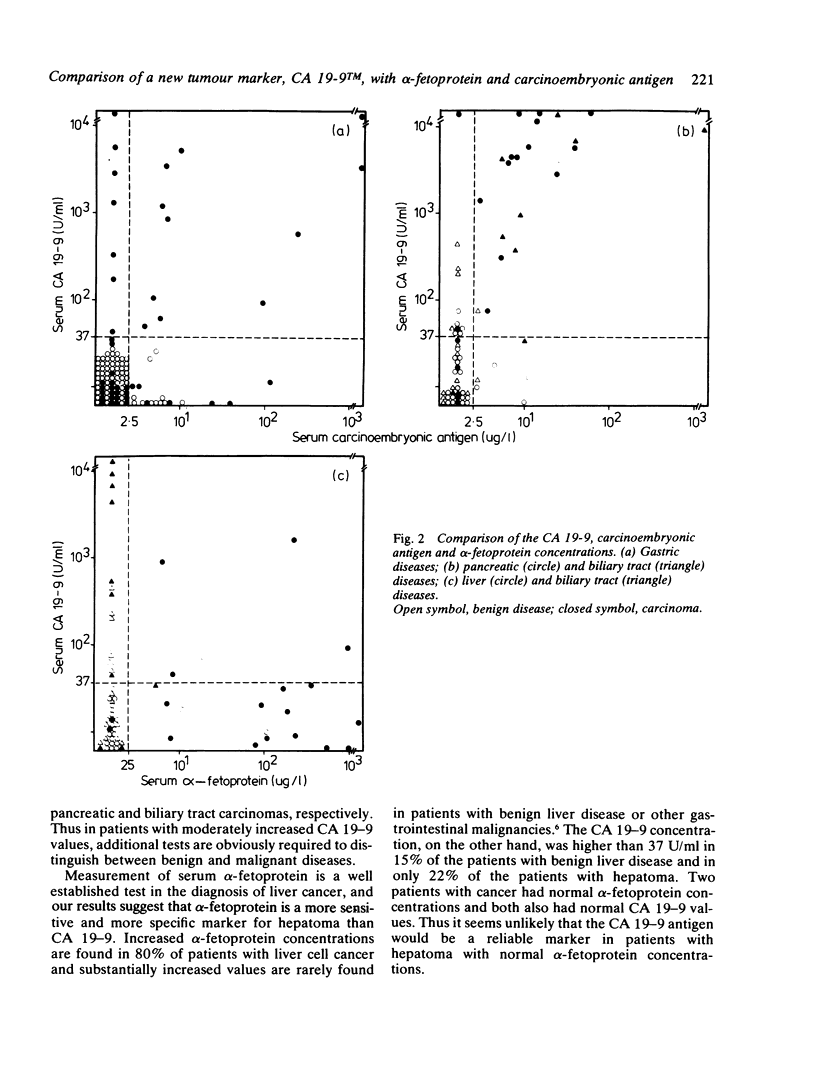
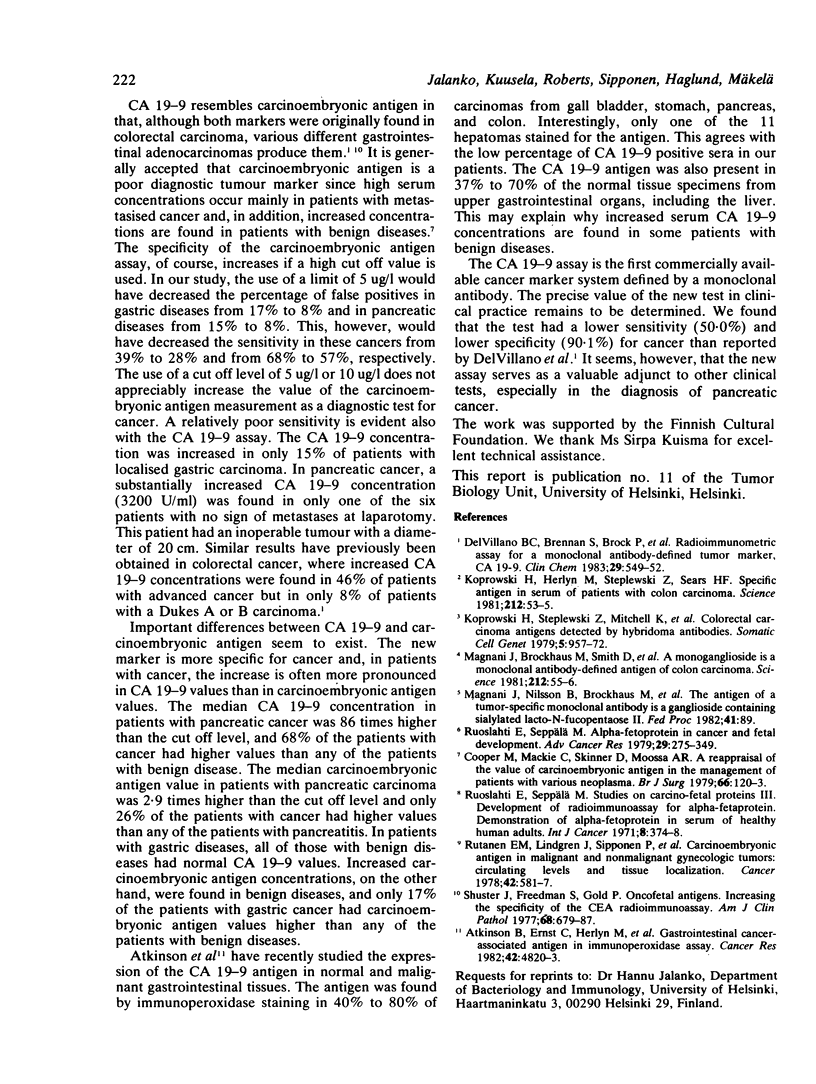
Selected References
These references are in PubMed. This may not be the complete list of references from this article.
- Atkinson B. F., Ernst C. S., Herlyn M., Steplewski Z., Sears H. F., Koprowski H. Gastrointestinal cancer-associated antigen in immunoperoxidase assay. Cancer Res. 1982 Nov;42(11):4820–4823. [PubMed] [Google Scholar]
- Cooper M. J., Mackie C. R., Skinner D. B., Moossa A. R. A reappraisal of the value of carcinoembryonic antigen in the management of patients with various neoplasms. Br J Surg. 1979 Feb;66(2):120–123. doi: 10.1002/bjs.1800660212. [DOI] [PMC free article] [PubMed] [Google Scholar]
- Del Villano B. C., Brennan S., Brock P., Bucher C., Liu V., McClure M., Rake B., Space S., Westrick B., Schoemaker H. Radioimmunometric assay for a monoclonal antibody-defined tumor marker, CA 19-9. Clin Chem. 1983 Mar;29(3):549–552. [PubMed] [Google Scholar]
- Koprowski H., Herlyn M., Steplewski Z., Sears H. F. Specific antigen in serum of patients with colon carcinoma. Science. 1981 Apr 3;212(4490):53–55. doi: 10.1126/science.6163212. [DOI] [PubMed] [Google Scholar]
- Koprowski H., Steplewski Z., Mitchell K., Herlyn M., Herlyn D., Fuhrer P. Colorectal carcinoma antigens detected by hybridoma antibodies. Somatic Cell Genet. 1979 Nov;5(6):957–971. doi: 10.1007/BF01542654. [DOI] [PubMed] [Google Scholar]
- Magnani J. L., Brockhaus M., Smith D. F., Ginsburg V., Blaszczyk M., Mitchell K. F., Steplewski Z., Koprowski H. A monosialoganglioside is a monoclonal antibody-defined antigen of colon carcinoma. Science. 1981 Apr 3;212(4490):55–56. doi: 10.1126/science.7209516. [DOI] [PubMed] [Google Scholar]
- Ruoslahti E., Seppälä M. Studies of carcino-fetal proteins. 3. Development of a radioimmunoassay for -fetoprotein. Demonstration of -fetoprotein in serum of healthy human adults. Int J Cancer. 1971 Nov 15;8(3):374–383. doi: 10.1002/ijc.2910080304. [DOI] [PubMed] [Google Scholar]
- Ruoslahti E., Seppälä M. alpha-Fetoprotein in cancer and fetal development. Adv Cancer Res. 1979;29:275–346. doi: 10.1016/s0065-230x(08)60849-0. [DOI] [PubMed] [Google Scholar]
- Rutanen E. M., Lindgren J., Sipponen P., Stenman U. P., Saksela E., Seppäla M. Carcinoembryonic antigen in malignant and nonmalignant gynecologic tumors: circulating levels and tissue localization. Cancer. 1978 Aug;42(2):581–590. doi: 10.1002/1097-0142(197808)42:2<581::aid-cncr2820420226>3.0.co;2-g. [DOI] [PubMed] [Google Scholar]
- Shuster J., Freedman S. O., Gold P. Oncofetal antigens. Increasing the specificity of the CEA radioimmunoassay. Am J Clin Pathol. 1977 Nov;68(5 Suppl):679–687. [PubMed] [Google Scholar]



